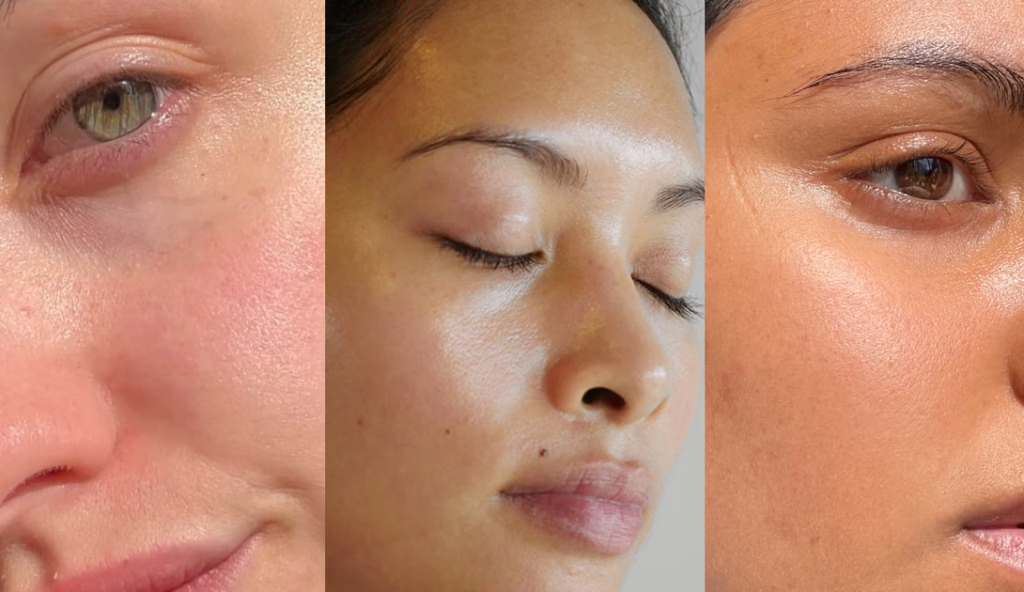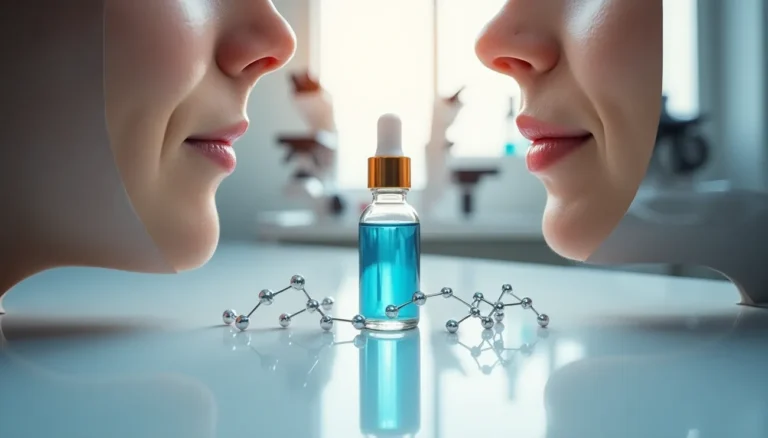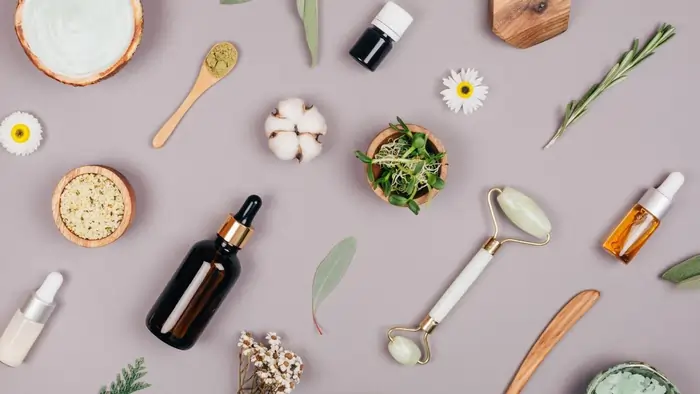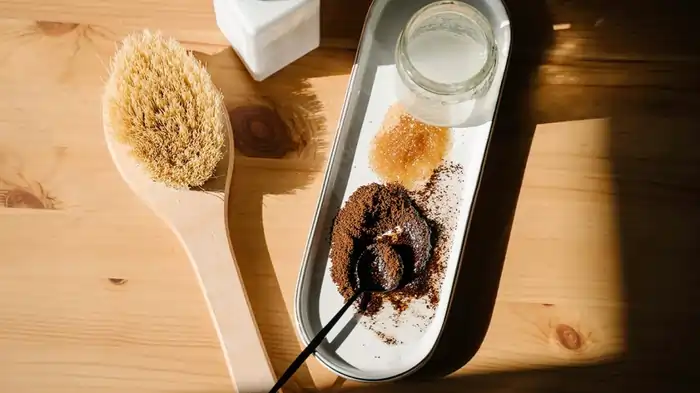The Hidden Truth About Hydration and Skin: What Dermatologists Won’t Tell You

Research reveals a surprising link between hydration and aging. A 30-year National Institutes of Health study with 11,255 adults shows that proper hydration and skin health contribute more to longevity than scientists previously believed. People who don’t stay properly hydrated age 50% faster than their actual age.
Most people spend money on expensive creams and treatments. Research shows that water’s role in skin health extends beyond surface-level beauty. Studies prove that drinking 2.25 liters of water daily changes skin thickness. Proper hydration also enhances skin’s elasticity, tone and cellular turnover.
Let me help you separate facts from myths about water’s effects on your skin. This piece presents scientific evidence about hydration and skin health. You’ll learn which common beliefs are true, which ones aren’t, and how to create a hydration plan that fits your specific needs.
The Science Behind Hydration and Skin Health

Image Source: Shutterstock
Water does more than just quench your thirst – it plays a vital role in your skin’s health at the cellular level. The science behind this relationship reveals some amazing insights.
How water functions in skin cells
Your skin holds about 64% water, and 15% of that stays right in the skin [1]. Special proteins called aquaporins (especially AQP3) create channels that move water and glycerol through cell membranes [2]. These molecular pathways keep your skin’s hydration balanced properly.
The dermis acts as your skin’s water storage tank. It contains “non-mobilizable” water that sticks firmly to molecules like hyaluronic acid [3]. Your stratum corneum (the top skin layer) works like a brick wall. The cells (corneocytes) stay connected by lipid “cement” [3]. This structure stops too much water from evaporating. Natural moisturizing factors (NMFs) inside corneocytes bind water molecules to keratin fibers, which keeps your skin supple [3].
The connection between dehydration and skin appearance
Dehydrated skin needs more internal moisture, which is different from dry skin (that lacks oils) [4]. Your skin might show these signs when it loses its hydration balance:
- Dull and uneven tone
- More visible fine lines and wrinkles
- Darker under-eye circles and “shadows” around the face
- Less elasticity (skin doesn’t bounce back after pinching) [4]
These visible changes happen because corneocytes can’t keep their proper size without enough water. Your skin looks flaky because dehydration disrupts the enzymatic functions needed for normal cell turnover [2].
What research actually says about water intake and skin
Scientific evidence linking water consumption to skin appearance remains limited, despite what many people claim. Studies show that drinking more water helps people who don’t drink enough in the first place [1]. A study showed that drinking an extra 2L of water daily improved skin hydration in people who weren’t drinking enough before [5].
Research shows that proper hydration affects your skin in several ways. The amount of water you drink can change your skin’s thickness and mechanical properties, including its elasticity and strength [4]. A newer study, published by researchers found that topical moisturizers improved skin hydration faster than drinking more water [5].
Science confirms that both internal hydration and external moisturization work together to keep your skin healthy. Researchers continue to study exactly how these mechanisms work and which matters more.
Debunking Common Hydration Myths for Skin

Image Source: Sand and Sky
The beauty industry keeps promoting hydration myths that make us reach for water bottles constantly. Let’s look at what’s true and false about drinking water and your skin’s appearance.
Can drinking water really eliminate wrinkles?
Wellness influencers might tell you otherwise, but science tells a different story. Several scientific reviews have not found any proof that extra water keeps skin hydrated or wrinkle-free [6][7]. Water affects your body’s cells but doesn’t automatically flow to your skin [8]. Your skin’s youthful look depends more on your genes, sun exposure, and whether you smoke than how much water you drink [9].
A small study showed that people who drank 2.25 liters of water daily for 4 weeks saw some skin changes. These results were mainly visible in those who didn’t drink much water before the study [10]. Yet experts agree that unless you’re really dehydrated, drinking lots of water won’t stop your skin from getting dry [11].
The truth about 8 glasses a day for glowing skin
That famous “8 glasses a day” rule came from a 1945 U.S. Food and Nutrition Board report [6]. The interesting part? People missed the next line that said, “Most of this quantity is contained in prepared foods” [6]. Different health authorities have their own guidelines. EFSA suggests 2.0L for women and 2.5L for men [5]. American guidelines recommend 3.7L for men and 2.7L for women [5].
On top of that, food plays a big role in keeping you hydrated. Pizza contains 40-49% water, and the average American gets 22% of their water from food [9].
Why some people see skin benefits from increased water intake
Studies show that people who don’t drink much water see substantial improvements in their skin’s hydration after they start drinking more [5]. One study revealed that extra water improved both surface and deep skin hydration in people who weren’t drinking enough before [12].
Extra water might reduce skin dryness and improve skin barrier properties [12]. The reality sits somewhere in between – good hydration helps overall health, but if you’re already well-hydrated, drinking more water won’t dramatically change your skin [13].
Realistic Benefits of Proper Hydration for Skin
The science behind skin hydration reveals real, measurable benefits that go beyond marketing claims. Your skin shows noticeable improvements when you stay properly hydrated.
Improved skin elasticity and resilience
Hydration plays a direct role in your skin’s mechanical properties. Research shows that hydrated skin becomes more elastic and flexible, which helps it resist environmental damage [4]. Scientists have measured real improvements in skin’s stretchiness when people drink more water [5].
A research study tracked participants who increased their water intake over two weeks [5]. Their skin showed better elasticity across different body parts. The leg, forearm, hand, and forehead areas displayed the most dramatic changes. This means your hydrated skin can stretch and bounce back without becoming loose or saggy [1].
Enhanced natural detoxification processes
Your skin doesn’t actually “detox” your body – that’s a common misconception. The liver and kidneys handle the real detoxification work [14]. All the same, staying hydrated helps these organs function better and remove waste products effectively [15].
Hydration boosts blood flow to your skin. This increased circulation delivers oxygen and nutrients while removing waste products [16]. So your skin stays clearer with fewer breakouts [2]. If you have chronic skin conditions, drinking more water might reduce dryness and strengthen your skin’s protective barrier [12].
Better absorption of skincare products
Hydrated skin absorbs topical products better. Your properly hydrated skin cells create perfect conditions for:
- Active ingredients to penetrate deeper
- Moisturizers and serums to work better
- Better exfoliation results [1]
“Hydration goes beneath the skin’s barrier. It infuses water into the cells to ‘plump them up,'” says dermatologist Dr. Cameron [17]. This internal moisture lets skincare ingredients sink deeper and work more effectively.
Resource links:
- American Academy of Dermatology: aad.org
- National Institute of Health: nih.gov
- Journal of Clinical Dermatology
Creating Your Personal Hydration Strategy for Better Skin

Image Source: Etsy
Better skin through hydration doesn’t mean following generic advice blindly. You need to understand your body’s unique needs and develop an individual-specific approach.
Calculating your unique water needs
Generic water intake recommendations don’t work for everyone. Research points to a more personal formula: multiply your weight in kilograms by 30-35ml to find your baseline water requirement [2]. You can also divide your weight in pounds by two to get your target ounces per day [18].
A 150-pound person would need about 75 ounces daily [19]. This individualized approach works nowhere near as well as random guidelines because your exact needs change based on several factors [2].
Machine learning algorithms offer a more scientific way to predict optimal hydration levels based on urine osmolality – a goal of 500 mOsm/kg shows ideal hydration status [20]. This method, though complex, recognizes that proper hydration varies from person to person.
Adjusting intake based on activity level and environment
Your activity level substantially affects your hydration needs. Research shows that higher activity levels relate directly to better skin hydration – more active people have better moisture retention in their skin [21]. You should add 400-600ml for moderate activity and 600-1000ml for intense workouts [10].
Your environment is a vital factor too:
- Hot weather: Add 500-750ml in temperatures above 30°C/86°F [10]
- Warm weather: Add 250-500ml in temperatures between 15-30°C/59-86°F [10]
- Indoor heating: You need more water in winter to curb dry air effects [2]
Lifestyle choices can increase your hydration needs. Caffeine, alcohol, high-salt diets, and medications require extra water intake to maintain optimal skin hydration [19].
Tracking methods that actually work
Setting a goal alone won’t help – you must track your intake. Research shows visual cues and reminders help people stay consistently hydrated [2]. Your phone can help with hourly reminders or a schedule with specific drinking times [2].
A practical tracking method uses dried beans between two bowls – move one bean for each glass of water you drink to see your daily progress [18]. Hydration-tracking apps offer convenient monitoring tools and send helpful reminders [2].
Your urine color gives meaningful feedback – light yellow usually means good hydration, while darker urine suggests you need more water [2].
Resource links:
- European Food Safety Authority: efsa.europa.eu
- National Academy of Sciences: nationalacademies.org
- American Academy of Dermatology: aad.org
Conclusion
Science shows a clear link between hydration and skin health, but not exactly how we used to think. My research indicates that water won’t magically make wrinkles disappear. However, good hydration helps your skin stay elastic, supports cell function, and keeps skin healthy overall.
You’ll get better results by understanding your body’s specific water needs instead of following random water goals. The amount of water you need depends on your weight, how active you are, and where you live. Research shows that people who stick to water routines tailored to their needs see better skin improvements than those following general guidelines.
A balanced strategy works best – you need both internal hydration and good skincare products. Drinking water alone won’t change your skin overnight, but healthy hydration levels help your skin function naturally and make your skincare products work better.
Your skin responds best to changes you can maintain long-term. Calculate how much water your body needs and slowly adjust your daily habits to match. Keep track of changes in ways that suit you and watch how your skin responds as time passes.
Resource links:
- National Institutes of Health: nih.gov/health
- American Academy of Dermatology: aad.org
- Journal of Clinical Dermatology: journalofdermatology.org
FAQs
Q1. How much water should I drink daily for optimal skin health?
There’s no one-size-fits-all answer. A good rule of thumb is to multiply your weight in kilograms by 30-35ml, or divide your weight in pounds by two for ounces. For example, a 150-pound person should aim for about 75 ounces daily. Remember to adjust based on factors like activity level and climate.
Q2. Can drinking more water eliminate wrinkles?
Contrary to popular belief, simply drinking more water won’t eliminate wrinkles. While proper hydration supports overall skin health, factors like genetics, sun exposure, and lifestyle habits play a more significant role in wrinkle formation. Adequate hydration can, however, improve skin elasticity and appearance.
Q3. How does dehydration affect skin appearance?
Dehydrated skin can appear dull, with more visible fine lines and wrinkles. You might notice darker under-eye circles and reduced skin elasticity. This occurs because without sufficient water, skin cells can’t maintain their proper volume, and normal cell turnover is impaired.
Q4. Does increased water intake improve the effectiveness of skincare products?
Yes, well-hydrated skin tends to absorb topical products more effectively. When skin cells are properly hydrated, they create an optimal environment for better penetration of active ingredients and enhanced effectiveness of moisturizers and serums.
Q5. What are some practical ways to track my daily water intake?
There are several effective methods to track water intake. You can set hourly reminders on your phone, use hydration-tracking apps, or try visual cues like transferring dried beans between two bowls for each glass consumed. Monitoring your urine color (light yellow indicates adequate hydration) can also provide meaningful feedback.
References
[1] – https://goldskincare.com/the-importance-of-hydration-why-your-skin-needs-more-than-just-moisturizer/
[2] – https://colecosmeticskincare.com/blog/water-intake-and-skin-health/
[3] – https://us.typology.com/library/understanding-the-role-of-water-in-the-skin
[4] – https://www.nature.com/articles/s41598-017-15921-5
[5] – https://pmc.ncbi.nlm.nih.gov/articles/PMC4529263/
[6] – https://www.med.umich.edu/1libr/Gyn/ObgynClinic/8GlassesWaterMyth.pdf
[7] – https://www.nytimes.com/2015/08/25/upshot/no-you-do-not-have-to-drink-8-glasses-of-water-a-day.html
[8] – https://www.thederminstitute.com/myth-drinking-extra-water-will-give-you-better-skin/
[9] – https://www.bbc.com/future/article/20120903-is-drinking-water-good-for-skin
[10] – https://www.justbottle.co/pages/daily-water-intake-calculator?srsltid=AfmBOoptLIqF-k4ylbL_LSNAQtVcGzuV0pk8M9O1mYg5A3gkaXH_CmHs
[11] – https://www.everydayhealth.com/diet-nutrition/10-myths-and-facts-about-water.aspx
[12] – https://www.mdpi.com/2079-9284/11/1/13
[13] – https://drmelissaerwin.com/debunking-common-skincare-myths/
[14] – https://www.medicalnewstoday.com/articles/skin-detox
[15] – https://www.webmd.com/beauty/what-to-know-skin-detoxifying
[16] – https://www.vogue.com/article/does-drinking-water-actually-hydrate-your-skin
[17] – https://www.webmd.com/beauty/features/skin-hydration
[18] – https://www.officeh2o.com/blog/water-news/tips-to-keep-track-of-water-intake/
[19] – https://www.westlakedermatology.com/blog/skin-health-are-you-drinking-enough-water/
[20] – https://pmc.ncbi.nlm.nih.gov/articles/PMC9669042/
[21] – https://pmc.ncbi.nlm.nih.gov/articles/PMC8018252/




